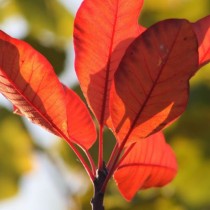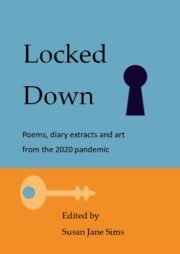 This Autumn, Sue Boyle, founder and organiser of the wonderful Bath Poetry Cafe has been giving a series of workshops to challenge the poets belonging to the group. These have been taking place in The Open House Centre in Manvers Street.
This Autumn, Sue Boyle, founder and organiser of the wonderful Bath Poetry Cafe has been giving a series of workshops to challenge the poets belonging to the group. These have been taking place in The Open House Centre in Manvers Street.
On Saturday I attended Limits of Meaning. See Sue’s introduction below:
The Limits of Meaning: How far can we ‘push’ the medium of language before meaning and/or communication with the audience breaks down? What can we achieve by ‘pushing’ meaning as far as it can go? What happens if we choose to push it further still?
As my own poetry normally communicates its meaning fairly clearly I was drawn to this particular workshop because I knew that it would force me to write in a totally different way and to explore poets considered “difficult” by the vast majority of readers. It did not disappoint. Building up slowly we considered what a poem should be by reading Ars Poetica by Archibald Macleish, explored the wonderfully whimsical Jabberwocky by Lewis Carroll and wrote our own verses with satisfying made up words, like frither and freast and pantapolk!! We briefly touched on Coromandel by Oswald Sitwell, listened to Sue read the beautiful Death Will Have No Dominion by Dylan Thomas, and then moved into the real meat of the day with two poems from Gerard Manley Hopkins Henry Purcell and That Nature is a Heraclitean Fire and of the comfort of the Resurrection and an extract from T S Elliot’s The Wasteland!! Again we had fun attempting the idiosyncratic style of Hopkins. Totally innovative at his time of writing, Hopkins discards the normal rules of syntax and creates dense verb, adjective and noun heavy lines, including newly created verbs like footfretted. The resulting carefully metered style though is full of energy and sounds wonderful read aloud albeit difficult to understand.
This is my resulting piece in the style of Hopkins: (the task to write on Sky, Wind, Autumn)
Autumn
Jagged, windblown terminal dance of days, moonsilver skeleton.
Sway green. Sway yellow. Sway red. Sway gold. Teardrops roughtorn.
Skydive. Loosening honour,loosening earthbound ties. Tiny demise. Unwatched,
uncalled for, unmourned. In Autumn’s thickening glaze.
Probably not quite Hopkins but I enjoyed writing and for me the demise of each leaf, the loss that is Autumn resonated with my father’s current situation, in a hospital bed with Alzheimer’s gradually taking away his faculties, his memories , his sense of identity piece by piece.
Finally we created our own brief wasteland, working as Elliot did with disjointed images. The Wasteland uses normal syntax and in that sense is easy enough to read. What is disorienting is that we do not always know where we are or who is speaking. Like my thoughts on Hopkins,what I am saying is vastly oversimplified, however for the purposes of this review let it suffice. Sue turned this into a collaborative exercise. We wrote individual pieces broken into sections with the instruction to make it random. Random lines on the subject of a modern apocalypse. Then in pairs we had to use the material generated to create a piece with some of the qualities of Elliot. Working with Claire Coleman this is what the two of us ended up with. Reading it you need to imagine a multitude of voices. We read each line alternately to get that effect however before I give you a modern wasteland, I want to include Claire’s comments on working collaboratively with another poet:
I really enjoyed the collaborative process of listening to each other and sparking off each other. E.g. So “we need another children’s rhyme…”
“Ah, head, shoulders, knees and toes.” I loved the sensitive interplay between two individual creations, giving each other space from which new lines/ideas can emerge.
(Claire Coleman)
Here is our collaboration – the dark and light reflecting our alternate voices:
Red Tide
bodies falling from the sky
children folded over, stacked
field littered with metal,
teddy bears, white waxen fingers
if you go down to the woods today….
the sight of flesh became forbidden
only the women and the girls came; gathered to light their candles
place on the blood spattered earth
say a prayer, say a prayer
here comes a candle to light you to bed…
the dead cannot look out
the dead have no eyes
a red tide of body parts
match them if you can
fit leg to hip joint, the ball in the socket
it’s child’s play
heads, shoulders, knees and toes
knees and toes
My conclusion on pushing the limits of meaning in my own work? It has the potential to make my work more original, though only of course if I can come up with something new… On having to work hard to extract meaning? The rewards are there. Sometimes. Some poetry is worth the extra effort it takes to digest. Some not. Some very difficult poetry gets read by only a handful of people and where is the joy in that?
Susan Jane Sims 14th October 2014







